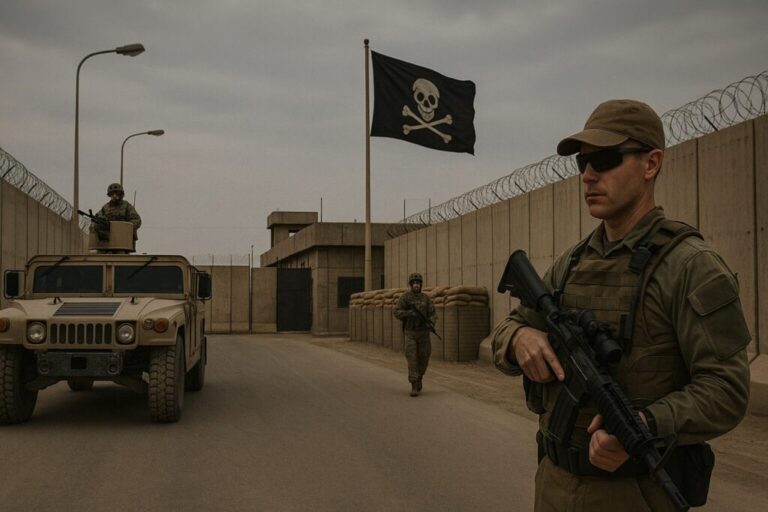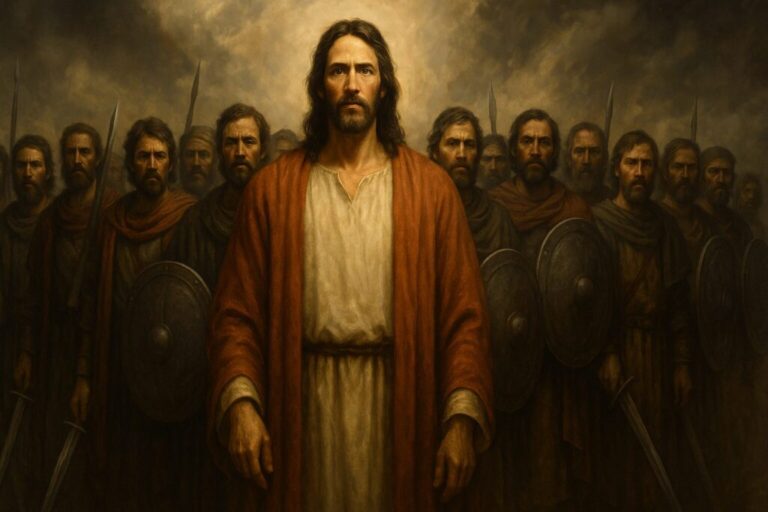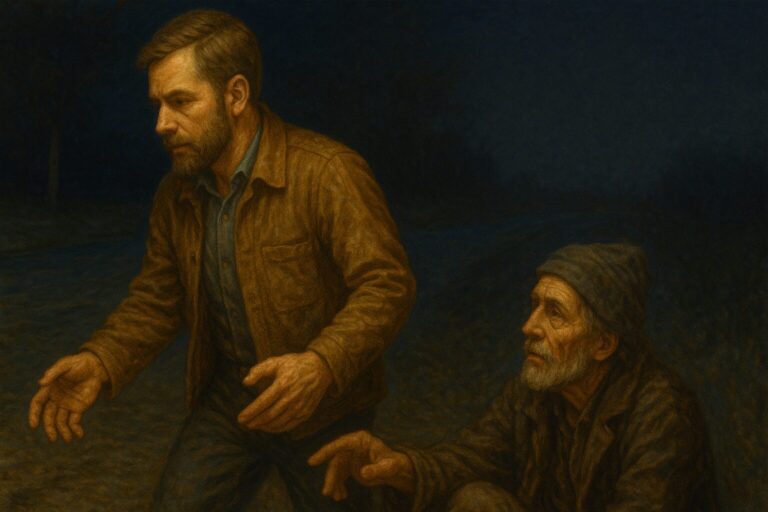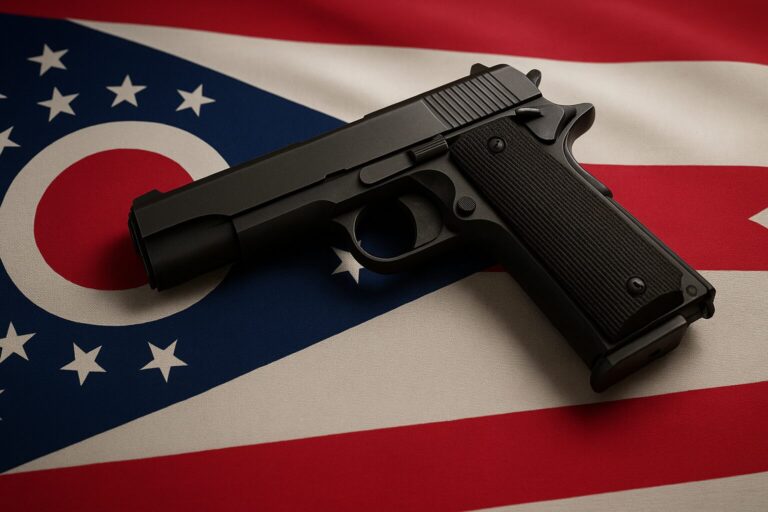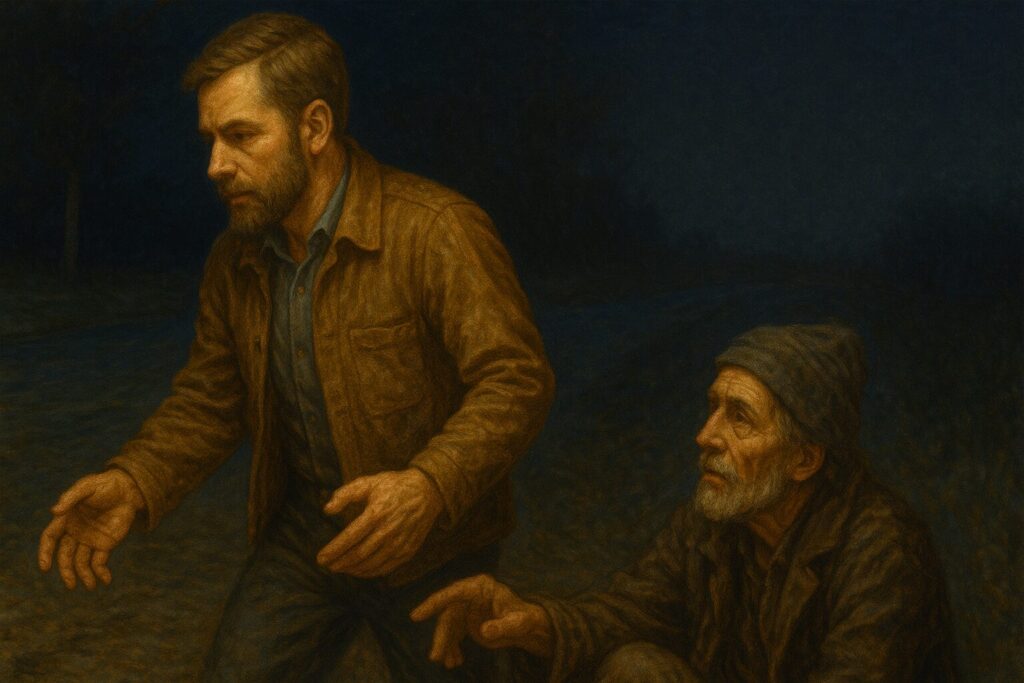
We live in an age where the mere mention of the word gun stirs emotions before reason. Many associate it with violence, death, or sin. Few, however, understand that a firearm, in the hands of a just man, can be a tool of love for one’s neighbor.
Yes—love. Because only the man who can defend himself is truly free to approach others without fear, and therefore, capable of genuine charity.
The Fear That Paralyzes Kindness
One night, while driving down a dark road, I saw a man lying on the shoulder. He looked injured, dirty, hungry. Had I been unarmed, I would have driven past. Fear—natural as the instinct for self-preservation—would have silenced compassion. After all, we never know who strangers in the night really are.
But that night, I was armed.
And that changed everything.
I was able to stop the car, step out cautiously, keep a safe distance, and offer help. The firearm did not make me violent—it gave me the prudent courage required to be good.
Security freed me from fear. And fear is the greatest enemy of charity.

Charity and Freedom Walk Together
True charity requires freedom, and there is no freedom where constant fear reigns. Disarmament, therefore, is not only a political mistake—it is a moral barrier to the practice of goodness.
An unarmed man must protect himself through distance. He avoids strangers, fears others, and walks past those in need.
But the armed man has the freedom to approach.
He can offer food to a homeless man, speak to someone in distress, or help a stranger in need—not because he is reckless, but because he is prudent and prepared.
Prudence—one of the four cardinal virtues—is not the opposite of charity but its foundation. It is the discernment that allows good actions to happen at the right time.
The Catholic Teaching on Legitimate Defense
The Church has never condemned the proportional use of force in defense of life.
On the contrary, the Catechism of the Catholic Church, paragraph §2263, states:
“The legitimate defense of persons and societies is not an exception to the prohibition against the murder of the innocent. The love toward oneself remains a fundamental principle of morality. Therefore, it is legitimate to insist on respect for one’s own right to life.”
And paragraph §2265 adds:
“Legitimate defense can be not only a right but a grave duty for one who is responsible for the lives of others.”
In other words, the ability to defend is not merely permitted—it is a moral responsibility. The father, the citizen, the man of faith—all have the duty to protect themselves and those entrusted to them.
Cowardice in the face of evil is not virtue; it is omission.
Saint Thomas Aquinas, in his Summa Theologica (II-II, q.64, a.7), affirms:
“It is not unlawful to repel force with moderation, proportionate to the defense of one’s own life.”
Moderation is not inaction—it is mastery. The virtuous man possesses strength yet uses it with justice. The firearm, in such hands, becomes an extension of reason and prudence, never of wrath.
Christ, the Sword, and Responsibility
Many are quick to quote Matthew—“He who lives by the sword shall die by the sword” (Mt 26:52)—to defend absolute pacifism.
But they forget that Christ also said in the Gospel of Luke:
“Let him who has no sword sell his cloak and buy one.” (Lk 22:36)
The meaning is clear: Christ was not advocating aggression, but acknowledging the necessity of self-defense in a fallen world.
The sword, like the modern firearm, is a symbol of responsibility.
The Christian does not seek conflict—but neither does he surrender his dignity to evil.
The Firearm as an Instrument of Charity
Charity is love in action. But to act in this world, one must feel safe.
When the firearm gives a man the confidence to walk freely, to approach, to act without fear—it becomes an instrument of charity.
Where fear reigns, action dies; and where action dies, good ceases to exist.
The armed man can help the fallen traveler.
He can stop his car at night.
He can assist the one in need without fearing for his life.
He can act out of compassion, not out of fear.
The Morality of Virtuous Strength
The world tries to convince us that strength is evil, courage is aggression, and self-defense is selfishness. But the truth is the opposite: without strength, virtue is powerless.
The man who cannot defend himself cannot defend anyone else.
And the man who cannot defend others, out of fear or weakness, fails in charity.
To be armed, then, is not an act of arrogance but of humility: the acknowledgment of evil’s reality and the decision to resist it.
A firearm does not change a man—it merely reveals what he already is.
In the hands of the just, it protects; in the hands of the wicked, it destroys. The difference lies in the soul.
Conclusion: The Freedom to Be Good
The true Christian does not seek domination but service.
And paradoxically, it is the capacity to resist evil that allows him to serve without fear.
A firearm, when guided by virtue, is a silent symbol of love for one’s neighbor.
It is not the denial of charity—it is the condition that allows it to exist in a dangerous world.
“Greater love has no one than this: to lay down one’s life for one’s friends.”
(John 15:13)
And perhaps, in many cases, only the one who can defend life is truly able to give it.



